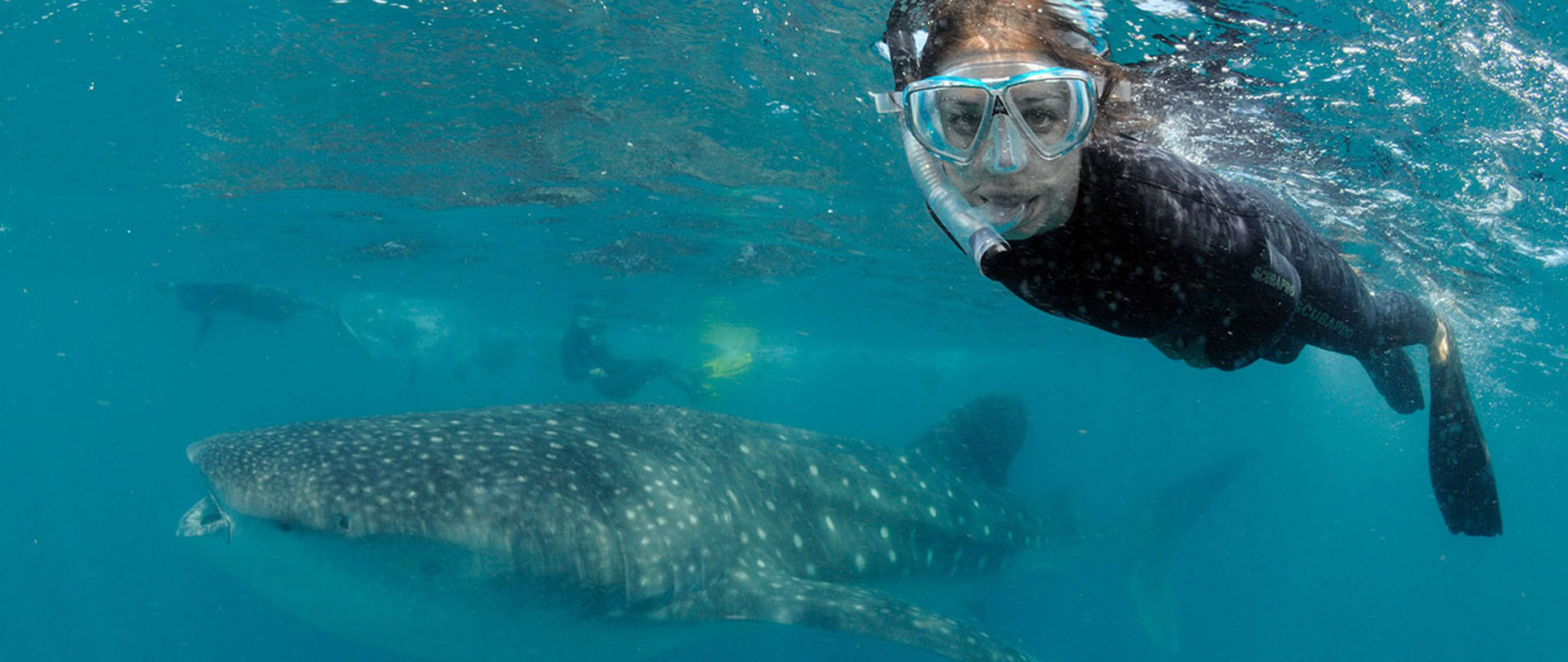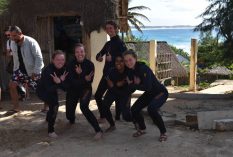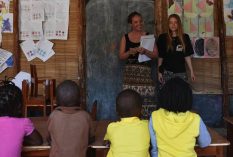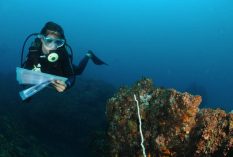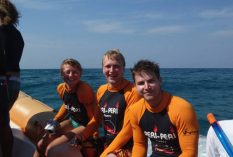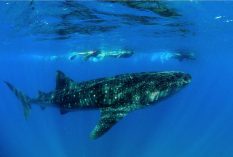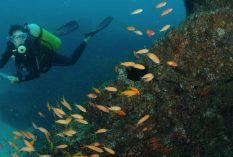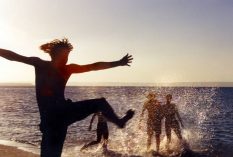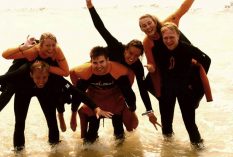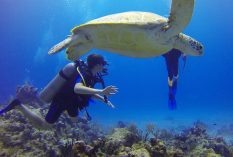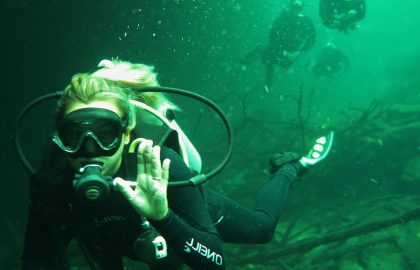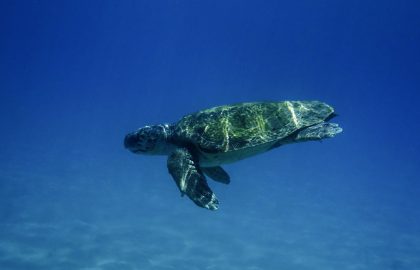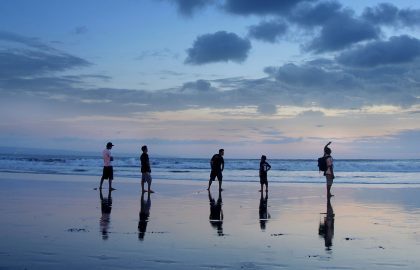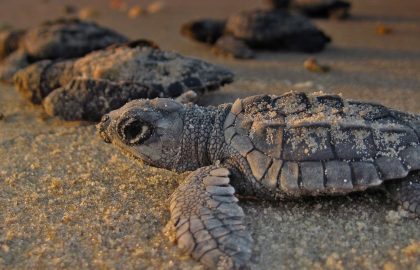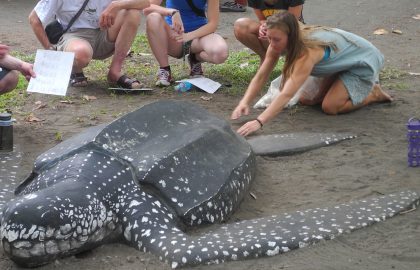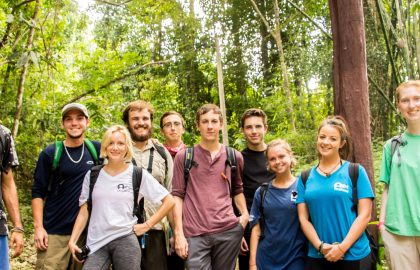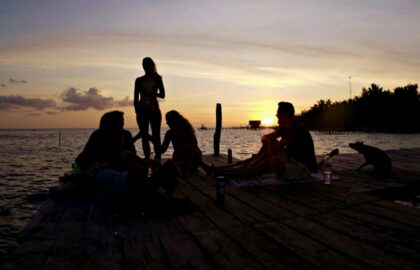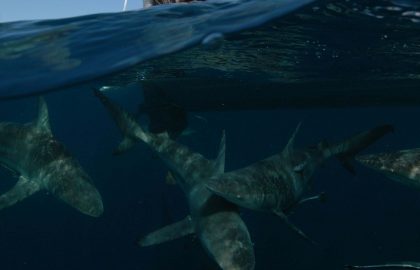Description
Location: Tofo, Mozambique
Duration: 2-12 weeks
Start Dates: There are start dates on the first Monday of each month from January to November.
Cost: from £1,514 GBP
Includes: all food, accommodation, airport pickup, orientation and all project related activities
Does not Include: flights, travel insurance, visas and vaccinations
Benefits:
- Snorkeling with the world’s largest fish! Whale Sharks!
- Contributing to real conservation efforts
- Gain a PADI Open Water or Advanced Open Water Dive certificate
- Participate in actual field work as a citizen researcher on active conservation research!
Introduction
Mozambique is emerging as one of Africa’s rising stars after a long civil war which impeded its development. With a dynamic atmosphere, abundant markets and gorgeous coastline, Mozambique has witnessed economic growth since the end of the Civil War. However, poverty is still vastly prevalent and health and social factors such as low literacy rates, HIV/AIDS, bad sanitation and lack of access to clean water reflect in high poverty rates and low life expectancy. Mozambique, though one of the poorest and most underdeveloped countries in the world, boasts rich natural resources and sights. The gorgeous palm-fringed beaches offer unique dive sites and varied marine life exploration opportunities including spotting dolphins, whale sharks, turtles and humpback whales. Its ocean and natural resources are of great value and must be protected and conserved.
This project provides valuable hands-on research experience alongside our experienced staff in well-equipped research centres and access to unique ecosystems and wildlife. You will get the opportunity to carry out marine research and monitoring activities under the guidance of our co-ordinating project scientists. You will join other interns on the project to collect data via scuba dives, ocean safaris and beach walks off the Tofo coastline. You can look forward to excellent diving, snorkelling and beach experiences while gaining first-hand marine research skills and contributing to this worthwhile project.
As an intern, you can get involved in a multitude of research projects including monitoring whale shark numbers, behaviour and ecology and taking underwater photographs, monitoring the condition of the coral reefs and indicator species of reef fish. You can join multiple research projects including whale shark behaviour and ecology monitoring, monitoring the condition of coral reefs and indicator species of reef fish as well as taking underwater identification photographs. You will be trained on how to take identification photographs of manta rays and other threatened marine species in order to assess and monitor their population. Depending on the time of year you may assist in various indicators of the health of the marine biodiversity such as surveying humpback whale numbers and the turtle nesting activity. Our coordinating project scientists will train you in assisting with data collection. You can also help out with cleaning up beaches and other general environmental activities in addition to uploading and analyzing data.
Many of the project activities require you to be able or be ready to learn how to scuba dive. In order to facilitate this, there is an internationally recognized open or advanced diving course included in the cost of the program (not included in the two week option). Also, you need to be capable to snorkel and to swim unassisted for 100 m. It would be an advantage if you can hold your breath while diving but it is not a requirement.
Extra Info.
This project involves conducting research and conservation activities with different species. Some are conducted at specific times of the year and other are conducted all year round. Our coordinating project scientists will accompany you on scuba dives and ocean safaris to assist with data collection.
Whale Shark (throughout the year)
This part of the project involves joining ocean safaris to snorkel with whale sharks as well as taking underwater photographs for identifying whale sharks and recording ecological information. The types of information collected include date, GPS location, surface and underwater conditions, size, sex, distinctive features, behaviour of the whale sharks. The ID photographs help identify each whale shark and record re-sightings.
Dolphin (throughout the year)
You will be collecting data which allows the dolphin numbers and behaviour to be recorded and uploaded into databases shared with our Marine Partners. Dolphin behaviour is of particular interest as it relates to tourism.
Coral Reef and Fish (throughout the year)
Coral reef monitoring involves joining scuba diving and carrying out underwater data collection about indicator species of coral fish and the condition of corals and echinoderms on the reefs. The research may involve recording indicator species of reef fish, collecting ID photos of megafauna including mantas, turtles and leopard sharks, collecting photos of nudibranches to help develop a species list for Mozambique.
Turtles (November to March)
The activities include surveying turtle survival and monitoring the nesting of turtles on the beaches around Tofo. The surveys involve working to patrol the beaches, recording nest sites, finding shells/sizing them and taking GPS points for data collection, monitoring fishermen and visiting nests during hatching season to record hatching success.
Seahorses (throughout the year)
This part of the project involves traveling to the Inhambane estuary and snorkeling in relatively shallow waters in order to evaluate and monitor the seahorse population which includes counting seahorses, identifying the size of seahorses by taking photos, entering data into a database for analysis.
Humpback Whales (June – October)
You may help with monitoring the numbers of humpback whales during their seasonal migration. You will participate in sand dune based observations with binoculars, boat based observations to record the number of whales, observing their behaviour.
General environment (throughout the year)
A more general environmental awareness and clean-up activities include collecting information during field work, collating it in a computer database on-site and online, uploading some data onto an international database where international contributors can access it and use for scientific journals and theses.
Additional information
• If you are taking Lariam/Mefloquine/Mephliam/Tropicure (or any other derivatives) as anti-malarial treatment (prophylaxis) you will not be permitted to dive, as it causes increased risks when diving. Please inform your doctor that you are going on a dive holiday, and request another suitable anti-malarial treatment.
• Accredited divers must bring their dive cards (listing their last logged dive) with them as proof.
• Dive accredited volunteers not requiring/wanting a dive course but who have not logged a dive within the last 6 months will need to complete a Scuba Review before they can participate in research dives. The cost of a Scuba Review is not included in the project cost, and a small fee will be paid locally for this directly to our partnering Dive Centre.
• The open water certificate qualifies volunteers to dive up to 18 meters, and some of the dive sites are between 20-30 meters deep. It is not required to dive at these deeper sites, but if you wish to participate in deep diving (up to 30 meters) you will either need to complete a Deep Dive course at a small additional cost, or you can choose to complete an Advanced Water Course at an additional cost.
• Ask for our fish-list if you would like a head start on understanding all the different species that you will be seeing on your dives!
Daily Life
Our staff will welcome you at Inhambane Airport and transfer you to your accommodation. Your second day will start with a presentation by the co-ordinating scientists which will prepare you for the project. After that you will get an introduction to Tofo and the nearby city of Inhambane. You will start your open water scuba diving course which will last between 4 and 7 days depending on the conditions. This is an internationally accredited course and upon completion you will get a certificate permitting you to scuba dive to 18 m anywhere in the world. If you already hold an open water course, you will complete an advanced dive course qualifying you to dive to 30 m. After the course is completed you will focus on the project activities.
If you are interning for two weeks and already have both open and advanced dive qualifications you will receive additional research dives or ocean safaris. You will begin the activities from day 8-13.
After your scuba classes you will have the opportunity to listen to interesting educational talks on the fascinating mega fauna with which you will be swimming over the next few weeks including how to identify different kinds of fish species.
On days 6-7 and all other weekends, you will have the time to explore the stunning palm-fringed beaches of Tofo – you can relax, swim, surf and enjoy the area. During the first weekend you can also complete your open or advanced certificate.
Once your dive course is completed you will officially be an assistant scientist. On days 8-12 and all other weekdays you will do dives.
You can start your day with the sunshine and a good breakfast! Afterwards, you will prepare your research dive – get your equipment together and head to one of the dive sites, and conduct research including fish and manta ray surveys. You may also go on an ocean safari and go searching for whale sharks and dolphins to photo ID and record their behavioural data. At 12:30 you can either return to the accommodation for lunch or eat a packed lunch brought with you. At 14:00 you can go to the office and enter data into the database from the research work you did in the morning. Depending on the time of year you may be collecting data on humpback whales, uploading photo IDs into the database, conducting turtle nest surveys or improving the beach environment by clean-up collection. You will return to the accommodation to share your experiences with the other volunteers and perhaps go for a swim in the ocean. A delicious dinner and time to relax will await you.
If you have signed up for a 2 week option, then day 15 will be your day to leave the lodge and transfer to Imhambane Airport to fly home. Our team will take care of your airport transfer if you leave on your designated day.
If you have chosen a 2 week plus option, you will continue on your project as described for days 8-12 and enjoy Mozambique a little longer!
Travel & Accom.
During your experience you will be staying at the Albatroz Lodge nestled at the top of the sand dunes next to the project’s office and the dive centre, just a few steps away from the spectacular Tofo Beach. The accommodation is dorm style (with bunk beds) in chalets with traditional thatched roofs, open living areas and ample room to relax outside. They sleep 4 and 12 people with mattresses, mosquito nets, sheets and pillows provided. There is electricity and running drinkable water. The toilets and showers are shared. There are communal living spaces in each chalet, a relaxation area and a swimming pool where many wonderful moments can be shared.
The Albatroz Lodge is a short walk away from Tofo village where you can find a market, some shops, restaurants and bars. Inhambane, the nearest town, is an hour away with public transport.
While on the project, you will enjoy three meals a day at the Albatroz Lodge’s restaurant overlooking the swimming pool. For breakfast you can choose from cereals, bread, fruit, yogurt, eggs and spreads. Lunch includes sandwiches, salads, omelettes and pasta. Dinner is a cooked meal which may be pasta, a local dish or stew. The meals are local and fresh and will be part of your cultural experience. Vegetarian diets and most food allergies can be taken into consideration.
Prior to your arrival you can also add a trip to Kruger national park (5 night camping safari) to end your experience with a bang!
Requirements
- Minimum age 18
- Minimum 2 weeks (qualified divers only) commitment
- Be able to communicate in English
- Be open minded, patient, adaptable and willing to embrace the challenges of the project
- Have a positive attitude towards living in a rural setting and working in a team
- Good mental and physical health – an appropriate level of fitness
- Necessary flights & visas
- Full travel & medical insurance – full assistance will be providing in arranging everything should you choose our Placement Support Package
Costs
| Non-qualified | Qualified Divers | |
|---|---|---|
| 2 weeks | NA | £1,510 |
| 3 weeks | £218+ | £2,021 |
| 4 weeks | £2,413 | |
| 5 weeks | £2,896 | |
| 6 weeks | £3,379 | |
| 7 weeks | £3,862 | |
| 8 weeks | £4,031 | |
| 9 weeks | £4,476 | |
| 10 weeks | £4,920 | |
| 11 weeks | £5,365 | |
| 12 weeks | £5,809 |
* Currency conversions are approximate.
** All payments incur a 5% bank transfer fee.
*** Places are confirmed with a 2 week deposit
What’s Included:
Project Fee includes food, accommodation, airport pickup, orientation, in-country support and project activities.
Only 4+ week volunteers will participate in the PADI scuba course. (less than 4 week volunteers will participate only in surface water activities for surface sighting research and will not participate in dives).
If you are already a qualified diver, let us know and you may be able to get a discount on the weekly fee.
What’s not included:
Flights, insurance, visas (if applicable) and vaccinations. Full assistance will be provided in getting all these arranged if you choose our Premium Support.
Premium Support Upgrade
We understand there’s a great deal to plan and organise for your trip. When booking a Placement, many of our participants choose to purchase our Premium Support Upgrade to benefit from the expertise, knowledge and experience of our Project Coordinators.
We can provide the personal advice you need to ensure your trip is organised with excellence and planned with efficiency; ensuring the very best experience possible. Read more about how we can help you.
Mozambique
Note: Map coordinates are approximate

